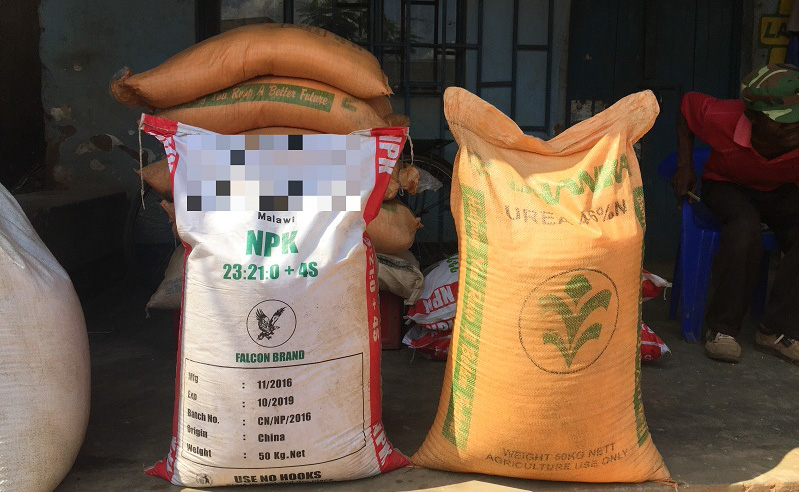Inputs subsidy under scrutiny
Malawi’s farm inputs subsidies have come under fresh scrutiny in a book which laments the immense burden they exert on the country’s economy amid continued investment in relief food.
In his new book titled Disentangling Food Security from Subsistence Agriculture in Malawi launched last week, International Food Policy Research Institute (Ifpri) senior research fellow Todd Benson observed that despite investing billions of kwacha each year in the food security initiative, an average 1.8 million Malawians still need relief food from the Malawi Government and its partners.

He writes: “The success of these maize production programmes is dependent on good rains, the burden they impose on the public budget is immense and there is no evidence that these programmes result in any structural transformation of smallholder production systems or in a strengthened commercial orientation for the sector.
“These policies, though possibly necessary and certainly politically acceptable in the short run, are unlikely to result in a food-secure Malawi over the longer-term.”
Benson’s sentiments come against a background of the recent admission by Minister of Finance Felix Mlusu that the subsidy programmes in agriculture were not sustainable in the long-term as they exert pressure on the budget. When presenting his budget statement in Parliament in June, he said government was exploring sustainable ways to implement the initiatives.
In a joint analysis of the K1.9 trillion 2021/22 National Budget, the Economics Association of Malawi (Ecama), Oxfam in Malawi and Lilongwe University of Agriculture and Natural Resources (Luanar) also questioned the rationale behind continued allocation of huge resources to input subsidies to achieve food security when government also buys relief maize for vulnerable populations.
Bertha Bangala Chikadza, a member of the Ecama and Luanar research team, is on record as having said the fact that beneficiaries are perpetually targeted with both subsidy and relief, it maize was an indication that the subsidies have not really helped to achieve food security; hence, the need to rethink their relevance.
“If we were able to achieve food security at household level with these subsidies there will be no need to allocate huge sums of money for relief maize. We have the relief maize targeting millions because we are unable to achieve food security with subsidies,” she said.
The analysis further urges government to consider putting more efforts to areas that will improve agriculture commercialisation and “to achieve pillar number one of the 2063 Agenda of having an optimally productive and commercialised agriculture sector”.
And in his policy article Rethinking Agriculture Subsidies, Associate Professor Daimon Kambewa from Luanar’s Department of Agriculture Extension supports the idea of graduating subsidy beneficiaries.
He also proposes that farmers should organise themselves into clubs that would eventually graduate to associations and cooperatives.
Since the 2005/06 fiscal year, the Malawi Government has repeatedly implemented Farm Inputs Subsidy Programme (Fisp) for smallholders to raise productivity and achieve national maize harvest to meet the needs of the population.
In 2020, the new Tonse Alliance administration replaced Fisp implemented by the previous Democratic Progressive Party (DPP) administration since 2005 with Affordable Inputs Programme (AIP), the alliance’s flagship election campaign promise that quadrupled the number of beneficiaries.
Data shows that about K757 billion has, so far, been spent towards the farm input subsidies, but an agricultural expert argues that such investment will not result in any structural transformation of smallholder production systems or in a strengthened commercial orientation for the agriculture sector.
Between 2005 and 2021, Malawi has spent K150 billion on procurement of maize for the national grain reserves for distribution to food insecure households, meaning that investment in subsidies has not achieved expected outcomes fully.
The development means that government has since 2005 allocated K757 billion towards these subsidies and a further K150 billion towards purchase of relief maize, taking the total expenditure to K907 billion.
In his book, Benson said all independent assessments conclude that the subsidy programmes could be implemented in a more efficient manner and achieve significantly broader impact, particularly at farm level.
He said the challenge Malawi faces is that the policy has largely relied on promoting agricultural production at the expense of broader policies of economic diversification or growth to promote a rural transformation that would ensure food security by improving access to food for all.
Benson further writes: “It is this persistent food insecurity at the individual and household levels that strongly influence policies as legitimacy of any government is largely sustained by citizens’ perception that it will be responsive to meeting the needs of the food insecure.”
Former president Bingu Wa Mutharika introduced Fisp in 2005 to ease food shortages.
Since 2005, five million people have collectively faced hunger with 833 000 in 2006/07, 63 000 in 2007/08, 3.1 million in 2018/19, about 1.8 million in 2019/20 and 2.6 million in 2020/21.





